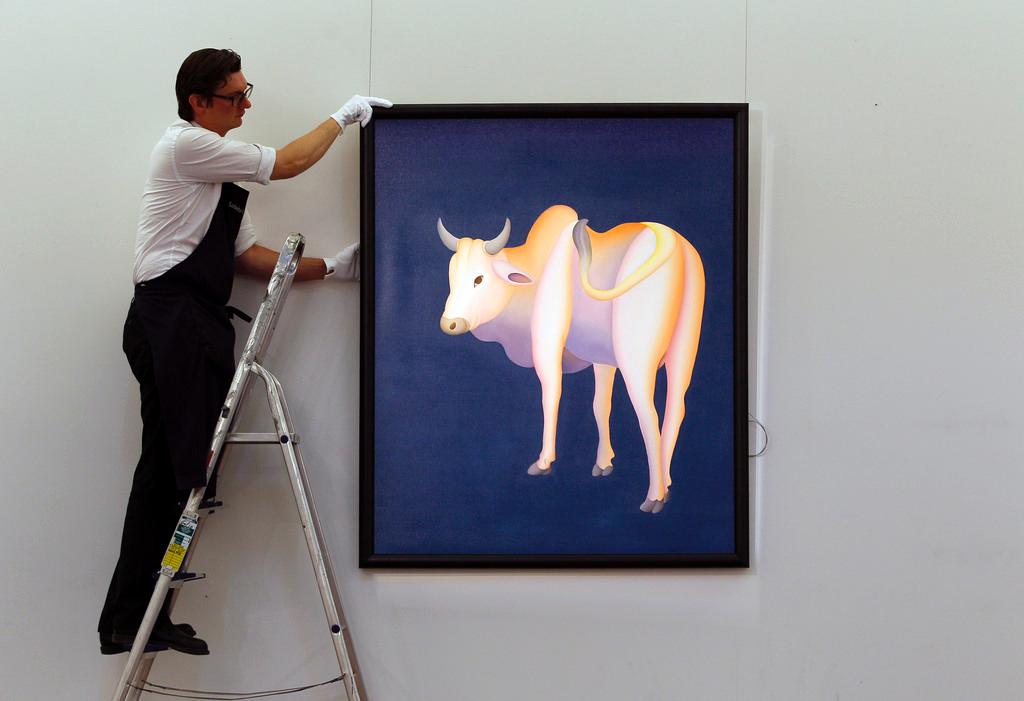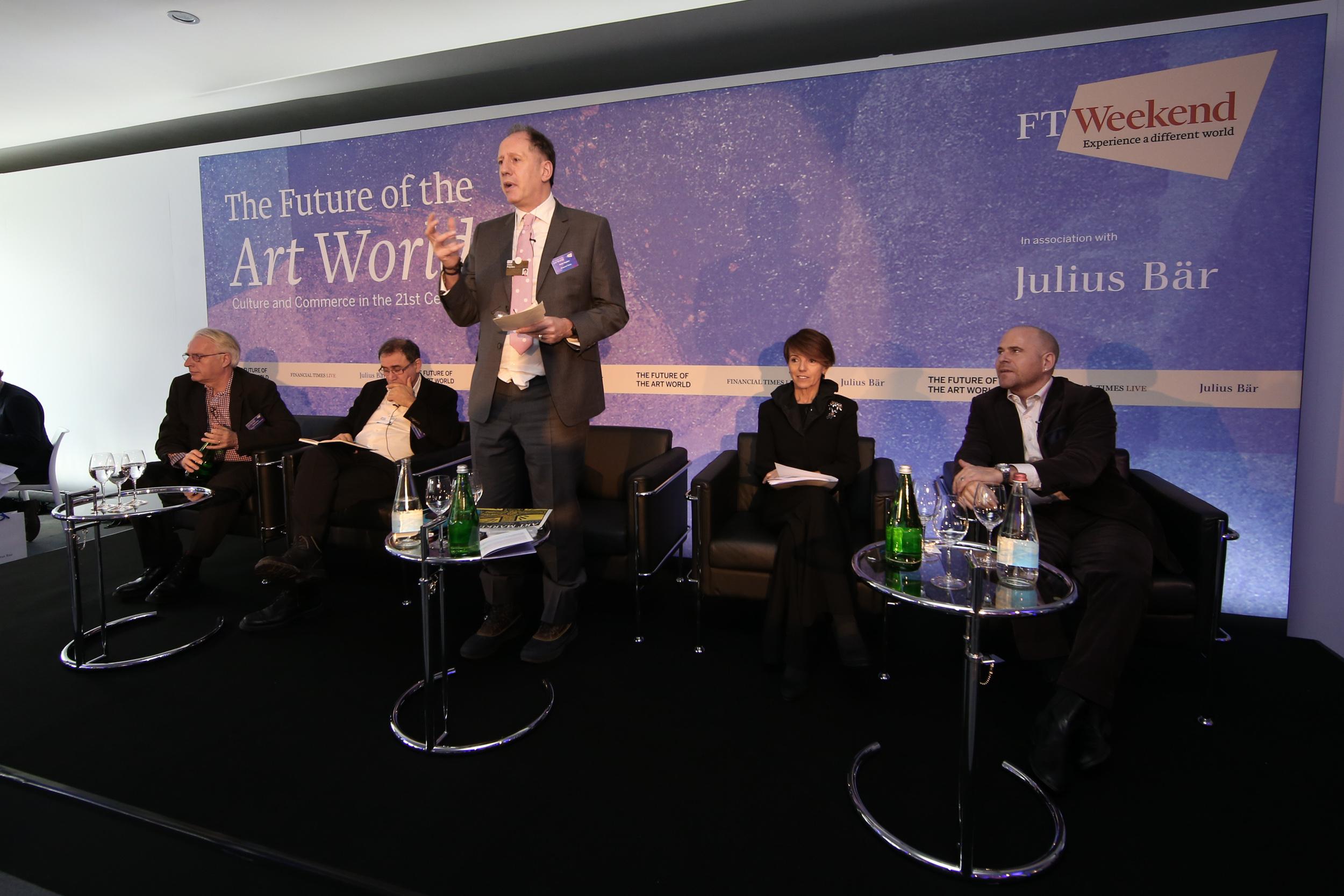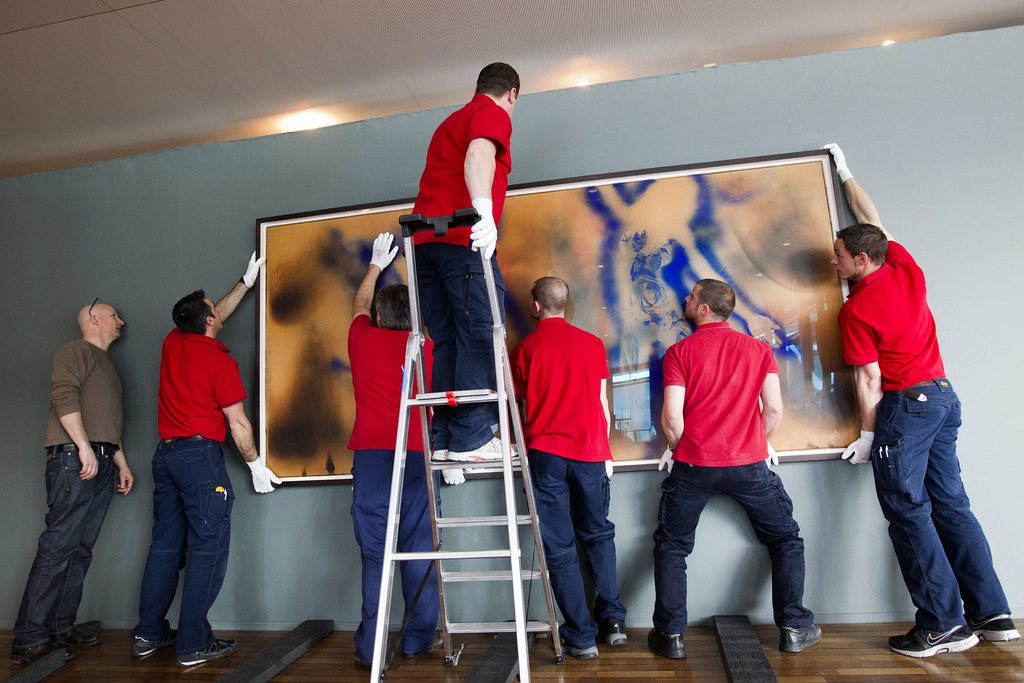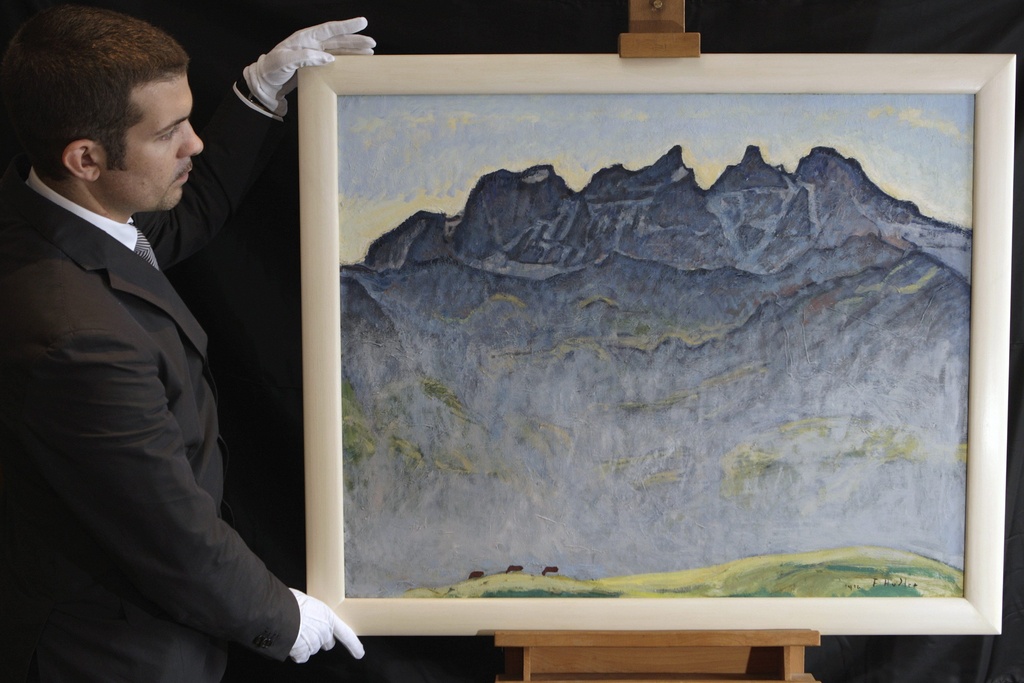The business of art, a Davos talking point

As an economic force that generates a yearly turnover of $70 billion (CHF61 billion), art is now a robust sector of financial markets. In Davos, key actors reviewed the impact of explosive growth in their own fields, from collecting, to art fairs and museums.
“There have been enormous changes in the ecology of the art world in the last 20 years,” announced Peter AspdenExternal link, the Financial Times’ arts writer, at a debate hosted Thursday by the British newspaper and bank Julius Baer.
“There was very little sense of glamour, popularity or money when I discovered the art world at the age of 17,” he continued. “Peculiar people came to see peculiar exhibitions. It was quite precious and secretive.”
But now the globalisation that is nurtured by international art fairs and the internet has brought new and unlikely people into the art world.
“I would argue that contemporary art has taken the place of music, because it captures the energy of today,” Aspden remarked.

Although prices in the art market continue to rise to previously inconceivable levels, there are no signs yet of the bubble bursting.
The opacity of the art market
Renowned economics professor Nouriel RoubiniExternal link provided an analysis of the mechanisms that have contributed to the phenomenal growth of the art market, including art services provided to high-worth individuals by financial institutions and widespread fiscal optimisation, especially in the United States.
Although he recognised the strengths of a market to which he himself contributes as a collector, he also highlighted the caveats of a non-regulated market that is singularly opaque.
“Anybody can walk into a gallery and spend half a million dollars and nobody is going to ask any questions,” he said, suggesting that art can easily be used for money laundering purposes.
“Art is never made in factories. It’s all about people.”
Marc Spiegler, Art Basel
”Roubini intimated further that art can be the subject of price manipulations or collusions between auction houses.
He believes that some form of self-regulation should be introduced into the art market, although he did not specify how that could be done.
He warned that as art becomes big business, it also becomes a big circus promoted by the fashion and entertainment industries.
As director of Art BaselExternal link, Marc Spiegler recognises the existence of a new breed of event seekers, but he also believes that art fairs give a real view of what is happening worldwide. Galleries and artists that are not on the well-worn circuits obtain visibility, such as the exciting artists that are coming out of Belgium and Indonesia.
The power of being a global player such as Art Basel comes with responsibilities as well, he told swissinfo.ch, noting the efforts that are made to encounter the public through conferences and debates and the active role that the fair has taken to train potential art collectors.
Passion
In 1992, Patrizia Sandretto Re RebaudengoExternal link experienced what can best be qualified as a contemporary art epiphany, when she realised that there is so much to be learned from artists who speak for their times.
Her passion for collecting works from very young artists was born.
By 1995 she had created a foundation outside Turin in Italy that has become a showcase for her collection, but, more importantly, a place that decodes the work of her discoveries for the public at large.
“It was a very different world when I began my collection. Nobody talked about the art market,” she explained.

More
Why contemporary art is breaking auction records
In her case, she has never bought works of art to speculate or to sell. She mentioned however an unforeseen situation where some artists today prefer to keep their works in the hopes of selling them to museums, rather than to sell them to collectors.
She observed how some artists that are harpooned early on by the art market end up churning out quantity instead of quality.
Re Rebaudengo remains convinced nevertheless that art collectors who identify, sustain and promote fresh talent are essential to the art world.
The sobering role of museums
Appointed director of the Victoria & Albert MuseumExternal link in London in 2011, German-born Martin Roth sees his role at the helm of a prestigious institution as a stabling counterweight to the effervescence of the art market.
Unless they launch fundraising campaigns, museums do not have the funds to compete with the art market, he said, mentioning that his yearly acquisition budget is only £300,000 (just below CHF400,000).
Instead, he considers that it is a museum’s role to protect quality and artists. This, he suggested, comes by developing new territories, taking intellectual risks and promoting synergies between the different art forms.
He concluded: “Don’t listen to art advisors, come to museums.”
In the mega Davos jamboree where politicians cross swords with economists, the art world has edged in sideways, but with its own specificity. As Spiegler reminded swissinfo.ch: “Art is never made in factories. It’s all about people.”

In compliance with the JTI standards
More: SWI swissinfo.ch certified by the Journalism Trust Initiative



You can find an overview of ongoing debates with our journalists here. Please join us!
If you want to start a conversation about a topic raised in this article or want to report factual errors, email us at english@swissinfo.ch.